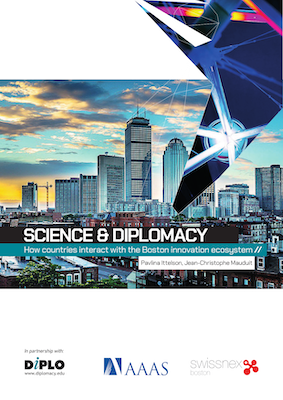Note: This article is a part of the publication ‘Science diplomacy capacity development: Reflections on Diplo’s 2021 course and the road ahead’
With an educational background in science, and after having worked for more than ten years as a researcher in the domain of space technologies, throughout the last 15 years I have been working in EU Institutions on the implementation of EC research policy. I therefore have a wide experience of EU Research Policy Programmes. My duties covered both implementation and policy aspects.
Since October 2019 I have been temporarily assigned to the EU Delegation to China as S&T Attaché, where my experience is transferred into the realm of Science Diplomacy. Here I can utilise my knowledge of EU institutions and of the decision-making process, acquired over 15 years of experience with the EC and its Executive Agencies.
Science diplomacy is an integral part of my work, having to deal daily with relations between the EU and China in the field of research and innovation. This has been particularly challenging in recent years, when these two global regions started rebalancing their diplomatic relations and their scientific-technological cooperation.
The main objective of my job is to facilitate STI cooperation between the EU and China. As international cooperation in science is multilateral, the strategic interest of the EU in strengthening scientific cooperation with China is therefore to enforce the participation of China in multilateral undertakings supporting scientific cooperation at an international level. At the same time this ensures a continuation in the international relations between the two regions, in a period of difficult discussion and negotiation.
‘Diplomacy for science’ and ‘science for diplomacy’ are the two main categories of Science Diplomacy that are particularly pertinent to my work. Cooperation between two big scientific powerhouses like the EU and China is particularly important when tackling global challenges like climate change, food security or a global pandemic like COVID-19.
These issues cannot be solved unilaterally, and it is important to set common goals to achieve results that might have mutual benefits for both sides. This can be achieved through suitable intermediation that facilitates international cooperation, and it is in line with ‘diplomacy for science’.
The international character of science also brings the opportunity to have open dialogues between the EU and China involving the research communities in science and research, especially in fundamental research, where common ground can be found more easily. Widening international engagement of the research communities also brings an improvement of international relations, at least in the field of science and research.
Researchers involved in international multilateral projects ensure a sort of smooth continuity of relations, even in times when the discussion at a higher political level encounters several difficulties, often being put on hold. Science is often one of the open channels when diplomatic relations are disrupted. Here is where the ‘science for diplomacy’ dimension finds its place.
My personal and professional perspectives in the field of Science Diplomacy will most probably build on my current professional experience, and the opportunities given by it, by engaging more deeply with Science Diplomacy issues through working practices and learning insights. Investigating the Chinese innovation ecosystem could for example enhance my knowledge on future strategy in the field of technological development. This also has crucial implications concerning future technological supremacy, which is of high interest to specific EU foreign policy objectives.








